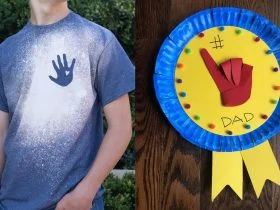Whether you are taking care of a newborn baby or a toddler, your main priority is to make sure they are properly fed. At this stage of life and development, making sure your baby gets enough food from you is one of the top priorities. How can you notice the signs of an underfed baby?
Well, that is what we are here to discuss. It is crucial that your baby is well-fed. Your baby must get the proper nutrients needed for healthy growth. So, by understanding the signals your baby shows, you are ensuring your baby develops and grows properly.
Reader's Roadmap
Why Is It Important For A Baby To Eat?
One of the top priorities of parenting is checking whether your baby is eating enough. Whether you’re breastfeeding or you do bottle feeding, the ultimate goal is to ensure your little one gets the right amount of nutrition.
Malnutrition is one of the biggest dangers for development and health issues. Malnutrition is the largest cause of mortality in children under the age of five. It also increases the risk of illnesses and infections that can reduce your child’s ability to recover.
To top it all, malnutrition can cause developmental delays like stunted growth, fragile bones, dental health issues, and cognitive impairments.
You might think malnutrition is something that plagues babies in underdeveloped countries as well. These are countries with limited access to food. But it is not an issue only there. Malnutrition is not something reserved for poor economies.
Babies in developing nations where food is available are also susceptible to starvation. Usually, this happens due to a lack of knowledge and not paying attention to the signs of an underfed baby.

Can A Baby Be Underfed?
You might be thinking there is no way your baby is underfed. But there are many possibilities for a baby to be underfed. Crying is not the only sign your baby exhibits when it is hungry. There are other signs of an underfed baby.
What does underfeeding mean? Well, simply put, it means your baby is not consuming enough calories needed for proper growth and development.
When your baby is younger than three months, you still do not know if your baby is getting a sufficient amount of milk or not.
Your child may drink a little less one day and more the other day. But your baby usually knows how to communicate its needs. Soon, you will understand these signals.
Is Your Baby Underweight?
People usually have an opinion and general view of what a healthy baby looks like. Most people cannot recognize an overweight or underweight baby by looking at him. Usually, chubby babies, even those that are obese, are considered to be healthy and adorable.
The two ways for determining whether a baby is underweight include weight-to-length standard deviation score and body mass index.
If your baby is not underweight, you might need to adjust your perception of what a healthy baby looks like.
Signs Your Baby Is Underfed
Now let’s talk about the signals and signs you should pay attention to. If you notice these signs, it is time to up the amount of food you give to your baby. And talk to a licensed pediatrician about what might be the cause of an underfed baby.
Poor Weight Gain Or Loss Of Weight
Here is a fact. Babies lose weight right after birth. It is not something uncommon. The reason for losing weight right after childbirth is the retention of fluids.
But newborns are then expected to gain weight two weeks after their birth. At this point, they should meet their birth weight. By 6 months, the baby should double the birth weight and triple it by the end of the first year.
If the baby’s weight is less at that timeframe, it means the intake is less as well.
Short Nursing Sessions
A breastfeeding mother will likely notice her baby is not eating as much. The concern always exists if the amount of milk the baby gets from the breasts cannot be determined. For a breastfeeding mom, the length of the nursing session is an indicator.
With that in mind, newborns should be fed 7 to 9 times per day, and no less than 10 minutes for each breast. The amount of time for nursing reduces as the baby becomes a pro. But that will not happen before two months of age.
Fewer Wet Diapers
One of the early signs of an underfed baby is fewer wet diapers. Here is the simple math. On the fifth day of its birth, your baby should have 5 wet diapers. And from the 6th day, it should be 6 wet diapers in 24 hours.
Anything less than this and it is an indicator of an underfed baby.
Your Baby Constantly Roots Or Opens Mouths
If your little one keeps its mouth open when it sees food, it means they want food. Or, when its cheek is brushed or stimulated. It means your baby is still hungry. Rooting is another natural phenomenon among babies. We use this term for the way they look for food.
For example, your hungry baby will turn its head toward food and move closer to the food. He may signal for food using his hands or put his hands on his mouth.
Some babies also show excitement when they see food. These are all normal hunger cues, so pay attention to them.

Dry Ayes And Dry Mouth
When we talk about common signs of an underfed baby, we have to mention dry eyes and dry mouth. They occur due to dehydration.
Also, a common symptom of dehydration is fewer wet diapers. So, when you have a dry baby, it means you are not providing enough food.
Dry Skin
We have to put dry skin in a different paragraph. Here is an explanation. A newborn baby has dry skin. And applying moisturizer will improve the condition of the skin.
But if you find your baby’s skin is dry even after applying lotions, it is an indicator of dehydration and underfeeding.
Bulging Eyes
Bulging eyes occur when a child loses a large amount of subcutaneous fat. This is the fat that lies underneath the surface of the skin. When this happens, your baby’s eyes may appear as if they are bulging out of their sockets.
Tired Baby
Babies need food for energy. It is that simple. Without energy, they will feel tired. When there is not enough food for muscle development, the baby will appear tired.
Breast milk and infant milk formula both contain protein, a vital ingredient for a growing baby. Without it, the muscles are weaker and movement becomes less. Your hungry baby will be lethargic and inactive. And you do not want that.
Finger-sucking After Feeding
This is a clear sign your baby needs more food. Finger-sucking is an easily identifiable sign of an underfed baby.
Babies will suck their fingers to soothe when they are hungry. You can take it as a signal they want food.
Your Baby Is Always Sick
If you want a clear sign of an underfed baby, look at the health of your little one. If it gets sick constantly and often, it means you need to provide more nourishment. Immunity depends on the food your baby gets.
Without enough food and nutrients, your baby’s body cannot fight any illnesses like a cold and fungal infection.
What Happens To An Underfed Baby?
Now that we talked about the signs, let’s talk about what might happen if you ignore the condition. When your baby is underfed, it will sleep for extra hours.
But do not fool yourself. If you think the extra hours will result in a calm baby, you are wrong. Babies who are not fed are usually cranky and fussy. You will also notice breastfeeding jaundice, a clear sign of underfeeding.
This can lead to a buildup of bilirubin because of the lack of bowel movements. And that can lead to a series of serious conditions and illnesses.







Leave a Reply
View Comments